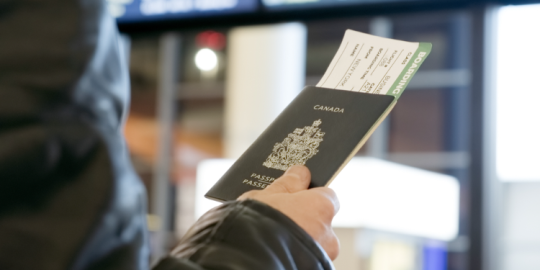The UN World Happiness Report continuously gives top happiness spots to Nordic countries, starting with Finland. The Global Mind Project's Annual Mental State of the World Report, on the other hand, insists that the world's happiest people live in the Dominican Republic.
The two reports rely on different methodologies. While the UN World Happiness Report takes into account social and economic factors (GDP, life expectancy, social support, etc.), the Global Mind Project's Annual Mental State of the World Report takes a more introspective approach and looks into mental and emotional health.
As a result, the two happiest countries in the world are almost 8,500 km apart and, let's be honest, have very little in common.
But the question remains: will moving to the happiest country in the world actually make you happier?
Are expats happy in Finland, Denmark, Iceland, and Sweden?
One expat on Facebook commented that the UN World Happiness Report is a running joke in Finland, with people using it to “encourage” each other to act like the happiest nation in the world.
But if we leave the jokes aside for a second, there are actually quite a few good reasons to be happy in Finland. First, the country follows the famous Scandinavian welfare model, meaning that the country's residents get access to extensive social services, including healthcare, education, and unemployment benefits. This translates into a high standard of living – Finland has one of the lowest poverty rates in the world.
In terms of health, life expectancy in Finland is around 82 years for men and 85 for women. The country's residents can benefit from high-quality healthcare and full coverage.
Finland is not a work-obsessed country. The country emphasized a balanced approach to building a career, with most companies offering very reasonable working hours and generous parental leaves.
One expat on Reddit writes that after moving to Finland from Saudi Arabia, he understood why this was the happiest country in the world. He then goes into more detail explaining that even though he would be making more money in Saudi Arabia, Finland had substantially more to offer when it came to safety, work-life balance, free education, and a sense of community.
While there is definitely a lot going for Finland when it comes to happiness and well-being, >some expats also note that there are downsides to living in the country. For instance, many of the newly relocated mention the country's cold and gloomy weather as one of the factors affecting their mood. Some even draw ties between the lack of sunshine and feelings of depression that the country's citizens may experience.
When it comes to other Nordic countries at the top of the happiness list, such as Denmark, expats seem to rely on similar explanations.
As >one expat explained on Reddit: “It's often said that we are not the happiest country in the world. We are just the most content. Our model affords us many safety nets, which means that we never have to worry about many things. This high amount of certainty affords us stability in lifestyle and "happiness” that most other countries don't have.”
Are expats happy in the Dominican Republic, Sri Lanka, and Tanzania?
There are very few things that the Dominican Republic and Finland have in common. While one country makes expats comfortable with a developed social security system, the DR attracts the more adventurous expat looking for a warm climate, beautiful beaches, and a lower cost of living.
The DR offers its residents a tropical climate with warm weather year-round, which would be especially attractive to expats from colder regions.
Overall, the cost of living in the DR is considerably lower compared to most Western countries. This means cheaper rent prices, affordable healthcare, and lower prices for everyday necessities.
The Dominican Republic is renowned for its natural beauty, and it has some of the best beaches in the Caribbean. Nature lovers can also explore mountains, waterfalls, and forests on picturesque hiking trails.
There is a relatively large and welcoming expat community in the Dominican Republic, making it easier for newcomers to adjust and build a network. Moreover, the people in the Dominican Republic are known for their friendliness and hospitality.
One expat, having lived in the DR for three years, notes: “The Dominicans are some of the friendliest people I've ever met. I've made lots of good friends, and people were very helpful when I was just trying to make it when I arrived”.
Yet another perk is that the DR is close to the US and Canada, which makes for easy travel for expats from these countries.
While there are quite a few perks to being an expat in the DR, there are challenges as well. The Dominican Republic has a relatively high crime rate, which means that expats need to stay alert and take the necessary precautions. Expats may also find the infrastructure (like roads, public transport, and utilities) less reliable compared to what they are accustomed to. Internet and electricity can be inconsistent, particularly outside urban areas. Moreover, healthcare options in remote areas may be limited as well.
Vincent was born in the Dominican Republic but has since moved to China and then traveled a lot of the world. “I don't believe in happiness polls. I think happiness is a very personal and subjective matter. Was I happy in the DR? Sure. Am I happy now, a 12-hour flight away? Sure. But I do kind of see why the Dominican Republic could be a happy nation. We have the sun and the sea, and we are very laid back as a people”.
Sri Lanka and Tanzania share a story similar to that of the Dominican Republic. These are exceptionally beautiful countries with friendly people and a relatively low cost of living. Expats note nature, people, and culture as the main advantages of living here.
Robert first came to Zanzibar on vacation in 2012, but the islands got under his skin. In 2018, he moved to Tanzania full-time to work as a diving instructor, and he has lived in the country ever since. “I'd say Tanzania can definitely “feel” like the happiest place on Earth, especially if you are an expat with a well-paid job and a good benefits package. But it would be irresponsible to say that it's the same for everyone. Many people here just know how to be happy with less.”
So which are really the happiest countries in the world?
So, which survey delivers a more accurate picture of happiness? Ironically, we can't really say. The results of happiness surveys are a popular topic for discussion and debate. More than that, the results of such surveys could have a profound effect on public policy.
For example, the United Kingdom has previously introduced the idea of replacing the country's gross domestic product (GDP) indicator with the Gross National Happiness Index. However, this initiative was substantially premature, according to Tim Bond, an associate professor of economics at Krannert and a faculty affiliate of the Purdue University Research Center in Economics.
“The Sad Truth About Happiness Scales,” published in the Journal of Political Economy, explores the idea further and comes to an unsettling conclusion: it is basically impossible to draw conclusive insights from happiness surveys. Understanding these limitations is crucial when considering using the findings of happiness surveys when making or evaluating policy. Making a relocation decision based on these or similar findings may also not be the best move, pun intended.
The safest conclusion would be this: happiness is in the eye of the beholder. While happiness surveys are, indeed, very useful in seeking out and analyzing happiness indicators, they, most likely, cannot be relied on for accurate results. There are too many factors and variables that come into play when it comes to emotional well-being.
And how does your current country of residence rank on the happiness scale? Do you agree with the score?
















